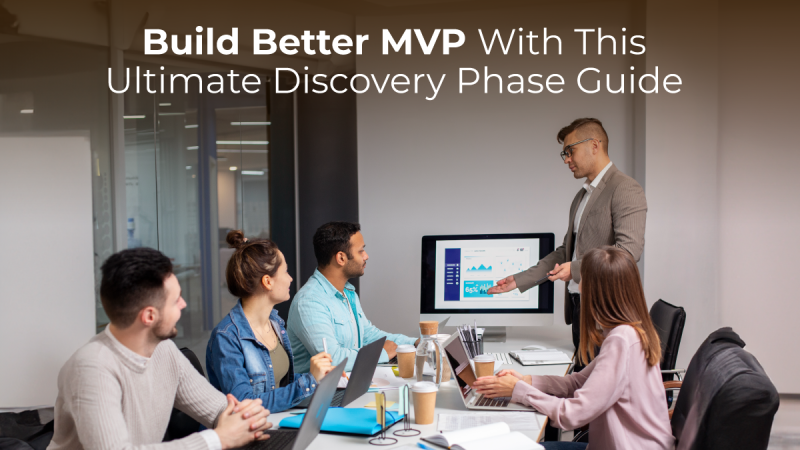How FinTech Managed Services Help Startups to Grow?
Startup ecosystems play a crucial role in fostering innovation, entrepreneurship, and economic growth. A thriving global economy needs a strong network of startup ecosystems to support the creation and growth of new businesses, which in turn can create jobs, generate wealth, and drive technological progress.
Startups bolster economic growth with relevant solutions for existing problems and aid in creating new marketplaces. Additionally, jobs are created to support the core objectives of a startup in spearheading change to improve the quality of life and surroundings.
An important feature of the startup ecosystem is FinTechs that offer managed services that are customized to a startup’s needs by their inability to hire too many people in the initial years of establishment.

Overview of FinTech Managed Services
Fintech companies offering managed services have become increasingly popular in recent years, as more businesses seek to outsource their financial management and improve their operational efficiency. These companies provide a wide range of services, from accounting and bookkeeping to payroll processing, tax preparation, and financial reporting.
One of the key advantages of working with these services is the ability to access cutting-edge technology and automation tools, which can help businesses streamline their financial processes and reduce errors. These companies also typically offer highly skilled and experienced financial professionals, who can provide expert advice and guidance on a range of financial matters.
Flexibility is crucial for startups and is a key feature of managed services. Businesses can choose to outsource as much or as little of their financial management as they need and can scale their services up or down depending on their changing needs.
FinTech Managed Services For Every Startup
Fintech-managed services are revolutionizing the way businesses and individuals interact with financial services. Here are 4 fintech managed services that every startup needs, along with an example workflow:
Payment Processing
Without reliable payment processing, businesses would struggle to collect payments from customers. A payment processing managed service provider or MSP handles the complex infrastructure required to process payments, including payment gateways, card processing, and fraud detection.
When a customer makes a payment on a fintech platform, the payment information is transmitted securely to the payment processing MSP. The MSP then verifies the payment information and sends it to the relevant payment network for processing. The payment is authorized or declined, and the MSP sends a response to the fintech platform, which then notifies the customer of the payment status.
Accounts Receivable
Automated AR is a financial service that helps businesses manage their accounts receivable process. The platform oversees the collection process of a business’s outstanding invoices, providing end-to-end solutions that include invoicing, collections, and reporting.
The managed services provider uses automated tools to track and manage the collections process, including sending reminder emails and making phone calls to customers who are past due. It also provides the business with regular reports on the status of its accounts receivable, including aging reports and collection activity summaries.
Accounts Payable
Automated accounts payable are managed services solutions that are designed to streamline the AP process, reduce errors, and increase efficiency. Key features of automated AP include invoice capture, approval workflows, and payment processing.
When an invoice is received, the AP automation software captures the invoice data, extracts key information, and matches it against purchase orders and receipts. The software then routes the invoice through an approval workflow, where designated approvers can review and approve the invoice. Once the invoice is approved, the software automatically generates payment, either through electronic payment or check processing.
Managed Procurement Services
Automated procurement solutions are designed to streamline and optimize the procurement process for businesses. Key features of automated procurement include supplier management, purchase order creation, and inventory management.
When a business needs to purchase goods or services, the automated procurement software begins by searching for approved suppliers and requesting quotes or bids. The software then helps the business select the best supplier based on pricing, quality, and other factors.
Once the supplier is selected, the software generates a purchase order and sends it to the supplier for fulfillment.
How To Implement Managed Services?
Implementing managed services for accounts payable, accounts receivable, and procurement involves a few key steps. Here are some general guidelines:
- Define your requirements
Start by identifying what services you need and what your goals are. This could include things like invoice processing, payment processing, vendor management, purchase order processing, and more.
- Identify potential service providers
Look for service providers who specialize in managed services for accounts payable, accounts receivable, and procurement. You can research these providers online or through referrals.
- Evaluate service providers
Once you have identified potential service providers, evaluate them based on their experience, reputation, and the services they offer. You should also consider factors like cost, flexibility, and customer support.
- Develop a service agreement
Once you have chosen a service provider, develop a service agreement that outlines the scope of services, pricing, and other terms and conditions.
- Implement the service
Work with your service provider to implement the service, which may involve setting up processes and systems, training your staff, and integrating with your existing systems.
- Monitor and evaluate the service
Once the service is up and running, monitor its performance and evaluate its effectiveness on an ongoing basis. This will help you identify any issues or areas for improvement and ensure that you are getting the most out of your managed services.
Conclusion:
Startups have to be frugal in every capacity to strengthen their grip on the market. The best part of using managed services in the initial years of business is outsourcing critical work where full-payscale staff cannot be hired. Startups that don’t leverage technology will be burdened further with the inability to cope against both established and new businesses that have implemented automation at some level, depending on their ability and resource requirements.
There are several managed service providers to choose from and it is necessary to conduct a complete due diligence and cost-benefit analysis before finalizing the right fit that matches your requirements.





